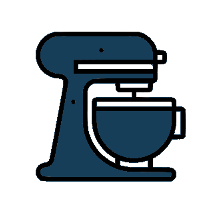John Cadbury (12 August 1801 – 11 May 1889), was a proprietor of a small chocolate business in Birmingham, England, that later became part of Cadbury-Schweppes, one of the world's largest chocolate producers.
Cadbury was born in Birmingham to a wealthy Quaker family that moved to the area from the west of England. As a Quaker in the early 19th century, he was not allowed to enter a university so could not pursue a profession such as medicine or law. Being pacifist, a military career was also out of the question. So, like many other Quakers of the time, he turned his energies toward business and began an apprenticeship as a tea dealer in Leeds in 1818.
The beginning of Cadbury chocolate manufacturing business[]
Returning to Birmingham in 1824, Cadbury opened a small one-man grocery shop at 93 Bull Street. The shop was next door to his father's drapery and silk business and apart from selling tea and coffee, John Cadbury sold hops, mustard and a new sideline - cocoa and drinking chocolate, which he prepared himself using a mortar and pestle. Cocoa and drinking chocolate had been introduced into England in the 1650s and had remained a luxury enjoyed by the elite of English society. Customers at John Cadbury's shop were amongst the most prosperous Birmingham families who were the only ones who could afford to buy cocoa and chocolate. In 1831, he switched his business and rented a small factory (an old malthouse) in Crooked Lane to begin the manufacture of drinking chocolate and cocoa. This was the start of the Cadbury manufacturing business as it is known today.
Influence[]
Cadbury was influenced in his choice of trade by his temperance beliefs – he felt alcohol was a major cause of poverty and other social ills, and saw cocoa and chocolate as alternatives. As a social reformer, he also led a campaign to ban the use of boy chimney sweeps and campaigned against animal cruelty, forming the Animals Friend Society, a forerunner of the Royal Society for the Prevention of Cruelty to Animals.
Cadbury brothers[]
Meanwhile, Cadbury’s manufacturing enterprise prospered, his brother Benjamin Cadbury joined the business in 1847 and they rented a larger factory in Bridge Street. Two years later, in 1849, the Cadbury brothers pulled out of the retail business, leaving it in the hands of their nephew, Richard Cadbury Barrow (Barrow's remained a leading Birmingham store until the 1960s).
Family life[]
Cadbury married twice. He and his first wife, Priscilla Ann Dymond (1799–1828), were married in 1826, but she died two years later. In 1832 he married his second wife, Candia Barrow (1805–1855). They had seven children: John (1834–1866), Richard (1835–1899), Maria (1838–1908), George (1839–1922), Joseph (1841–1841), Edward (1843–1866), and Henry (1845–1875).
Dissolution[]
Benjamin and John Cadbury dissolved their partnership in 1860 and John retired in 1861, leaving his sons, Richard and George to continue to build the business. In 1879 they relocated it near a small village called Bournbrook, which they developed and named Bournville, now a major suburb of Birmingham. The family rapidly developed the Cadbury's factory, and it remains a key site of Cadbury Schweppes.
Death[]
John Cadbury devoted the rest of his life to civic and social work in Birmingham until his death in 1889, the year in which the City of Birmingham was inaugurated.
